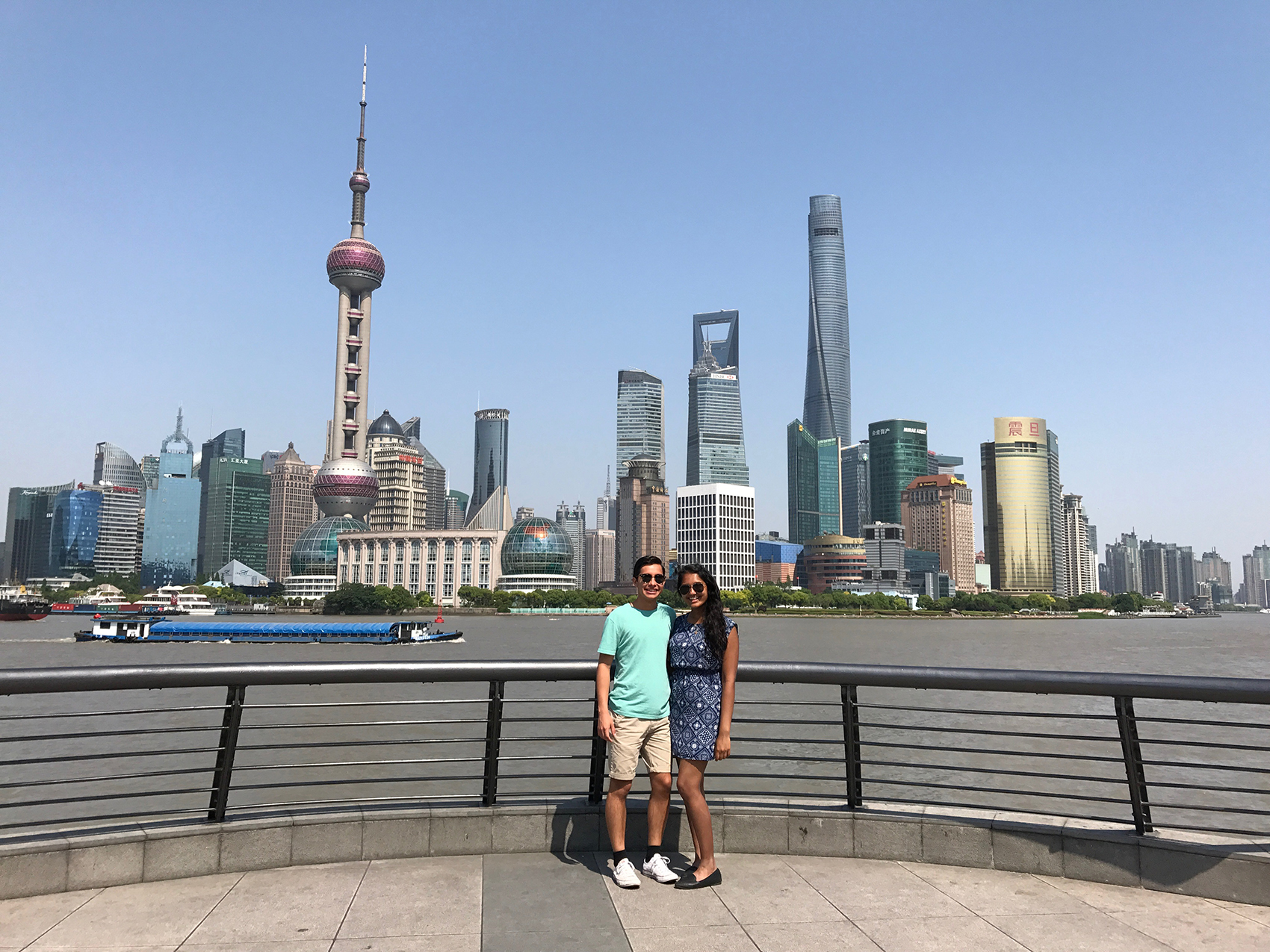Reflecting on the PGS Experience
By: Pearl Subramanian, CAS ’19

Pearl (right) in China during the PGS travel component
Environmental Health Issues and Global Implications
Travel to China
With a little more than 100 days left until graduation, now is around the time when reflecting upon my past four years at the University of Pennsylvania seems like the apt thing to do. As a Health and Society major with a Global Health concentration, my classes at Penn have trained me to focus heavily on the social determinants of health (education, environment, poverty, race, etc), as well as to analyze how different health systems work around the world. During my sophomore spring, I had the chance to take the Penn Global Seminar, Environmental Health Issues and Global Implications, which included a two-week travel component to Shanghai and Nanjing, China. This course was a perfect complement to my major and academic interests, providing an opportunity to get both local (US) knowledge about environmental health as well as an international experience. Not only did we hear from top lecturers and study interesting topics such as water quality, climate change, and health policy in the US while we were at Penn, but we also had an academically enriching immersive experience in China. We partnered with medical schools, hospitals, community health clinics, and colleges to learn about the current strengths of the Chinese healthcare systems as well as upcoming challenges. My classmates and I visited the Chinese CDC, researched on a topic of our interest, and spent time learning about everything from pediatric lead poisoning to gestational diabetes to food pricing and nutrition in Chinese markets. It was truly a hands-on learning experience, and I am so glad to have had the opportunity to have gone abroad through Penn, all the while satisfying academic requirements in my major. The class offered a range of both cultural and academic understandings of China, and went above and beyond at encouraging us to think critically, intelligently, and helped us cultivate our passions and goals. Intertwining academic concepts on a global platform, the PGS China course was my favorite class at Penn and was made possible by Dr. Liu’s dedication to all that she does.
By far the most transformative experiences I had in China which reinforced my ambition to become a pediatrician specializing in community medicine was when I had the opportunity to shadow Dr. Chong-Haui Yan’s clinic at Shanghai Jiaotong University. Dr. Yan, also known as “Dr.Lead” has earned his nickname as China’s leading pediatrician specializing in lead toxicity. Dr. Yan saw many patients every day and truly highlighted the importance of figuring out how to improve health behaviors without infringing on the customs and age-old traditions of the local people. I was particularly moved by the pediatric patients with lead poisoning that had traveled over 200 miles to Dr. Yan’s clinic. Here, I was able to truly see the value of community medicine and developing culturally appropriate solutions to health problems.
In Dr. Yan’s clinic, many cases of lead poisoning had a cultural basis. One part of a traditional Chinese ceremony to honor ancestors requires the burning of an aluminum-like paper. This paper is often manufactured in workshops that are the ground level of houses and apartments. Children whose parents work in the workshops that manufacture this paper are often unaware that it releases lead, and often after working with this paper and interacting with their kids after a long day, the lead gets transferred to the child and may result in lead poisoning after multiple exposures. Hearing the stories of these families and witnessing the effects on the patients was extremely moving. One mother was shocked and devastated once Dr. Yan explained the source of the lead, and she stated that if she had known what she was doing to her kid, she would have switched jobs. Another family, after visiting Dr. Yan for the treatment of their first child, sent the children to live with their grandparents so the second child would not get the lead poisoning.
This experience truly allowed me to see how the most important aspect of health care delivery is compassion for cultural practices. By developing appropriate solutions and educating local people about healthy practices without infringing on cultural rituals, Dr. Yan was a great role model and encouraged me to practice medicine with a similar dedication to personal narratives and community values. I hope that I too have the opportunity to positively influence the health outcomes of people around the world in the future.
Penn Global Seminars combine intensive semester-long study with a short-term travel component that deepens your understanding of concepts discussed in the classroom. Courses options are available for Penn undergraduate students across majors and years.